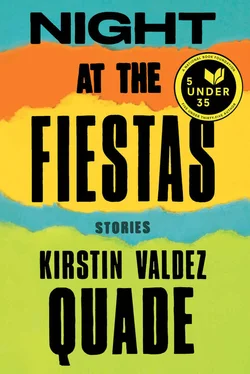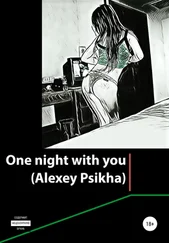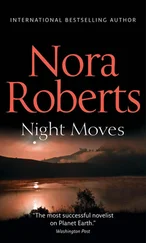“He’ll be here,” the girl said. She looked at Crystal and gave her a miserable, apologetic smile. She’d dressed for the appointment: black pants tight around the thighs, shirt made of a cheap stretchy satin. Her hair was down, sprayed into crispy waves around her face. A gold cross hung from her neck. Crystal imagined she’d dug it out so that Father Paul would think she was a virgin, which was what Crystal herself had done when she took the job two years ago.
Since the arrival of Father Leon, the young Nigerian priest, three months before, Father Paul had been sleeping past his alarm. Crystal enjoyed the thought of the priests chattering away late into the night like girls at a sleepover — but the idea of humorless, aloof Father Leon saying anything that wasn’t strictly necessary defied imagination. Sometimes, to amuse herself, Crystal experimented by greeting him with wide-ranging degrees of enthusiasm, but Father Leon gave her the same solemn nod every time.
More likely, Father Paul stayed up late reading. In the afternoons Crystal cleaned the rectory, and Father Paul’s study, with its crowded, dusty shelves and uneven stacks of books, was the most difficult of her jobs. Or it would have been, if she’d ever done it properly. Usually she swiped her paper towel along the edge of the shelves and vacuumed around the papers and wool cardigans and scattered shoes and books. Church histories, Pacific naval battles, CIA conspiracies. If she mentioned his books — how many he had or how busy they must keep him — Father Paul generally cracked some mild self-deprecating joke and changed the subject to television, as if out of consideration for Crystal. He loved crime shows, the same ones Crystal occasionally watched at night, in which naked young women showed up dead in hotel bathrooms. “My guilty pleasure,” Father Paul said, shrugging good-naturedly.
Crystal didn’t like thinking about a priest’s guilty pleasures. But, actually, she couldn’t see Father Paul being truly guilty of anything. Even the crime shows were part of an act, she suspected, to prove that he was a little naughty. Human. During Lent he’d made a big show of sneaking handfuls of M&M’s from the glass bowl on Collette’s desk, the woman’s one concession to office niceties.
“Oh, you know me,” Father Paul would say, jiggling the candy in his palm before tossing back a mouthful, and Crystal would smile gamely.
“Guess he has to have something,” Collette said once after Father Paul left. “These alcoholics never get any better, just switch one thing for another. He better watch it.”
Crystal had rolled her eyes. Twenty-eight years clean, Father Paul had announced last month, on his anniversary, and his air of celebration had seemed just as overblown as Collette’s cynicism.
Father Paul would, as always, feel terrible about being late for the couple’s appointment. He’d take off his glasses and press his thumbs into his eyes, and his lapse would probably show up in his homily, as his lapses always did. His sins were so vanilla that you almost had to wonder whether he committed them just to have something to talk about on Sundays. Even his alcoholism and his journey to recovery had been wrung of any possible drama by how thoroughly and publicly he had examined them. In the next several days he’d repeatedly bring up this morning’s tardiness, and Crystal would have to tell him each time that it was an honest mistake, that everyone makes mistakes.
The young man bounced his leg, and the heavy heel of his work boot thumped. Finally, he stood. He planted his fists on the cluttered edge of Collette’s desk and leaned in. “I’m not waiting around all day.”
His fiancée widened her eyes. But, if he meant to intimidate, he’d picked the wrong person. Collette had worked in the parish office for years. Her tasks were menial and few, but she sat at her desk all day like a toad, grumbling in Spanish as she opened offertory envelopes and pasted labels. Though her desk was closest to the door, she did not greet people when they came in. If spoken to, she sighed, set down whatever she was working on, and looked so put-upon that, more often than not, people made hasty apologies and turned to Crystal for what they needed.
Collette jerked her porous, wrinkled chin at the young man. “You got things to do? So get away with you, then.”
When he looked at her in surprise, Collette held his gaze. “I mean it. Get out. We don’t want you here.”
The man stepped back, glanced uncertainly at the door, then at Crystal.
“Please,” the girl said, eyes filling, voice tragic. “We have to meet Father Paul. We’re not even done with the premarital questionnaire. The wedding’s on Saturday!”
Collette turned to Crystal. “Go find him.”
Crystal fixed her eyes on the screen and clattered away at the keyboard. “Actually, I’m in the middle of something.”
“And if he’s not there, bring that Father Leon.” Collette snorted, as she always did when mentioning the new priest.
The girl’s face registered dismay, because Father Paul was beloved and Father Leon was not, but what could you do? A priest was a priest, even if he was just a pastoral vicar newly arrived from Africa, and you had to act grateful.
Now Collette said, “It’ll do that man good to socialize him. You hear me, Crystal? Go on.”
Crystal pushed herself up from her desk, tugging her shirt over her belly. “ Fine .”
THE JOB WAS SUPPOSED to have been temporary, a pause before college, but here she still was, needing the money more than ever. When Crystal first started showing, she worried that she might have to leave, but to her relief her pregnancy had elicited surprisingly positive reactions, Collette notwithstanding. The ladies in the Altar Society had given her an array of miniature garments in pink and blue. Her mother, usually so needy and resentful, was pleased that Crystal had given up her apartment and moved back home. She talked incessantly about the babies, prepared plates of protein- and calcium-rich foods, loudly beseeched God to keep them healthy. Crystal was grateful — she was — but still hated that her mother had to be involved. “Where were you, staying out all hours?” her mother asked when Crystal got home Sunday morning. “You know better. And me home alone waiting.”
But no one was as sympathetic as Father Paul. Perhaps because she was young and pregnant or because she cleaned the rectory, he was always reaching out, thanking Crystal for her hard work, taking an interest. “Anytime you need an ear or a hand,” he’d say as she Windexed the patio doors. He seemed eager for her good opinion, seemed to want her to confide in him.
Once she had admitted that the babies’ father was out of the picture, though she hadn’t revealed how little she’d known him — another hookup, another party. She hadn’t revealed that whenever she was out, at the mall or the grocery store, she found herself looking more closely at a certain type of man — short, built, sandy-haired — despite the fact that he hadn’t even been from Santa Fe, had been visiting from California. She hadn’t revealed how often she wondered what traits in her children would bring the blurry, drunken memory of him more sharply into focus.
“I’m so sorry,” Father Paul had said, his eyes soft and his voice rich with empathy. Then, after a moment, “You know, the sacrament of Reconciliation is such a gift.”
When Father Leon’s arrival was announced, Crystal had expected someone energetic and progressive and possibly tiresome, setting up basketball games and youth activities and regular soup kitchens in the hall. She’d thought that the new priest might joke with her, might offer real comfort that came from his contemporary understanding of how the world actually worked.
Читать дальше












